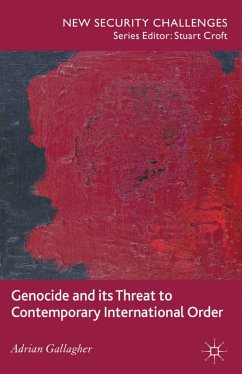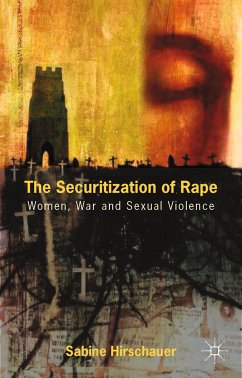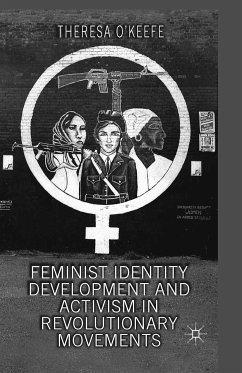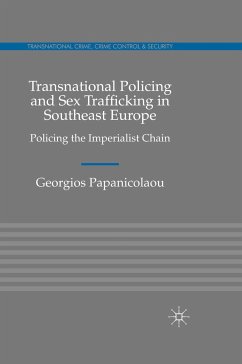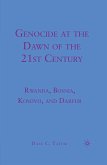For far too long the discipline of International Relations has failed to engage with the study of genocide. This is despite the fact that genocide holds a direct relationship with the central concepts of international relations: the state, war, power, and security. This bold, innovative and unique book sets out to tackle this by bringing the concept of genocide into the discipline of IR, via the English School, in order to theorise the relationship between genocide, justice, and order. Drawing on a wide-range of primary and secondary interdisciplinary material from International Relations, Genocide Studies, Security Studies, International Law, History, Politics and Political Theory, this book aims to understand genocide within the context of International Relations and the implications that this has on policymaking. Gallagher identifies the obstacles and challenges involved in bringing the study of genocide into IR and uniquely analyses the impact of genocide on the ordering structure of international society.
Dieser Download kann aus rechtlichen Gründen nur mit Rechnungsadresse in A, B, BG, CY, CZ, D, DK, EW, E, FIN, F, GR, HR, H, IRL, I, LT, L, LR, M, NL, PL, P, R, S, SLO, SK ausgeliefert werden.

